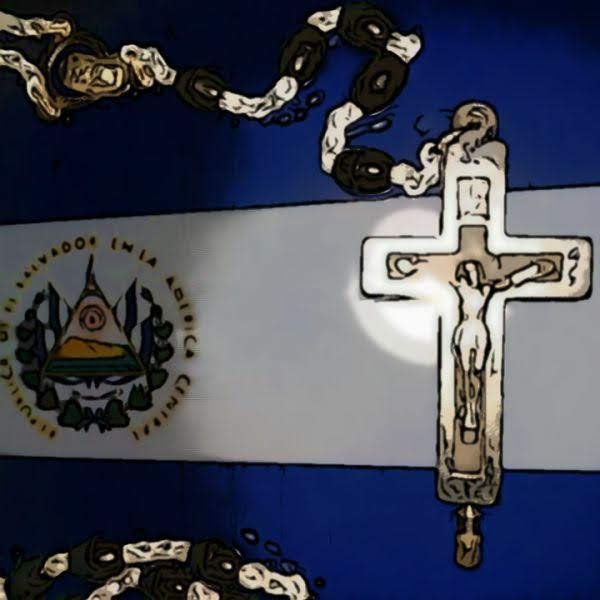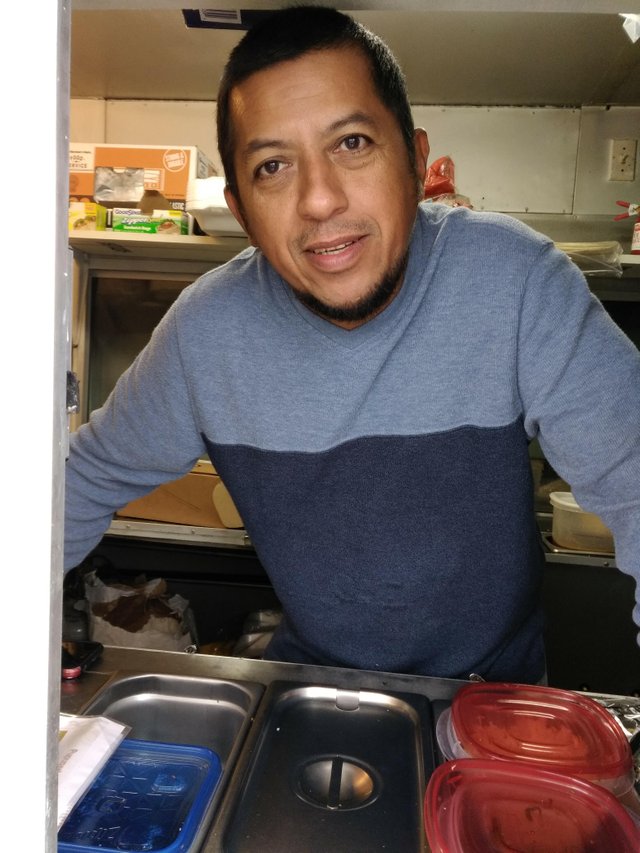The Milagro of Romero's Sainthood

By Hope K
Lately when you read the news about the Catholic Church, it’s really bad. But on October 15, the Pope canonized a truly remarkable person, Oscar Romero. This is a saint whose life you should study, even if you aren’t Catholic.
Saint Óscar Arnulfo Romero y Galdámez was born on August 15, 1919, in Ciudad Barrios, El Salvador. His dad taught him to be a carpenter, but he chose to become a priest. As a child, he would take a paintbrush dipped in water and sprinkle the other kids to bless them. After he finished studying in Rome, he came back home to El Salvador to minister to the people.
He became a monseñor, and he started editing the archdiocesan newspaper. The paper was conservative, and most people thought Romero was, too. He refused to be involved in politics, saying he was neither left nor right. However, he was chosen to be the archbishop because the Vatican thought he was conservative. His superiors in the Church were on the side of the government and the USA.
Now let’s back up and look at the history of El Salvador. Since the Spanish invaded and colonized El Salvador, the country has had a strong Catholic identity. Interestingly, it was another priest, José Matías Delgado, who called for Central American independence in 1811, paving the way for El Salvador’s independence in 1821.
The people are mostly mestizos, or mixed race. They come from the indigenous people, who successfully fought off the Spanish for a while, and the Spanish colonists. Coffee has been the traditional cash crop, and an oligarchy referred to as the “Fourteen Families” formed. The income inequality was terrible, and most people were poor. Uprisings of the oppressed were brutally squelched. Elections were rigged for candidates in favor of the rich and the USA. The CIA funded candidates who they considered to not be Communists because they said they were afraid of the domino effect.
The CIA also funded and trained El Salvadoran death squads in places like the School of the Americas. The death squads tortured, murdered, and mutilated thousands of people, terrorizing the populace into submission. Anyone who spoke out about the governmental corruption was a potential victim, and that included priests and nuns. Opposition groups formed and El Salvador got a junta in 1979.
Romero was made archbishop during the chaos leading up to the junta because the Vatican thought he would uphold their position. At first he did. He had a nice place to live and he kept to himself mostly, except for his preaching, which was growing in popularity. When it came to commenting on the violence, he kept out of people’s way and preached about peace.
That changed in March of 1977, when one of Romero’s friends, a priest named Rutilio Grande, was shot to death by government thugs. Grande was considered a Communist because he expected things like, priests living in the communities they served. He thought pastors should do more than just bless people. According to Grande, the Church needed to take seriously what Jesus said: “Faith without works is dead.” Grande believed the Church should help the poor people empower themselves. This type of belief is called liberation theology.
Romero didn’t consider himself to be a liberation theologist, but the death of his friend hit him hard and made him rethink his actions. He knew it would probably cost him his life, but he did it anyway. He moved into a room at a hospital run by nuns and immersed himself in the lives of the people. Military men came to him and asked him what they should do because they were being ordered to kill their fellow countrymen. He struggled with what to tell them. If they refused orders, they faced death.
During this time, the press in El Salvador was controlled by the government. The Salvadoran mainstream media was taking the side of the rich and powerful, so the populace was left in the dark about what was happening. Romero set up a radio station and became a citizen journalist. He did his best to make his reports unbiased and called them “Facts of the Week.” Though the violence was being mostly perpetrated by forces working for the government, Romero also criticized the opposition groups when they committed atrocities. He got a lot of death threats.
They blew up his radio station, but he kept on going with a makeshift setup. His homilies were enormously popular, and most of the people were listening. He told the military that they should follow their consciences and put down their arms. Romero told them that “No soldier is obliged to obey an order contrary to the law of God.”
The next day he was shot at the pulpit while delivering a sermon for a funeral, something he did too often.

Samuel was a both a lawyer and a doctor in El Salvador. Right now he’s working in a restaurant in the US. He came here to get a law or medicine degree so that he could practice in the US. And though he says he has the proper documents to study stateside, the universities won’t accept them. He’s not the only one with this type of problem. Because of governmental instability, the document issue can be a tangled web.
I asked Samuel about Oscar Romero. He said that “Monseñor Romero loved all the people and wanted to empower the people. In 1980, the government was right wing and supported by the rich and the Catholic Church. They made it out to be political, but it wasn’t. Monseñor Romero just wanted to help the poor people. When the Pope came to visit, the government showed him around and told him everything was fine, and he accepted that.”
I asked Samuel if he remembered the war. He said that after Romero was killed, people called him a martyr. He told me about a massacre, of which there were several, at a park in San Salvador in which 500 people died. “In the 1980s, there were lots of bodies.”
He also said that groups on both sides of the war received money for guns from the good ole USA. The US funding both sides of a war? Where have I heard that before? Oh yeah. Syria, along with many others, I have no doubt.
Samuel’s thoughts on the Catholic Church are complex. He thinks that “religion is fine, but not all people are.” He says that most talking about the canonization are making it political, including the Pope, but it should be about the people of El Salvador. “Monseñor was a problem for the military, and that’s why they killed him. Right, left, middle — it’s a cancer. Many innocent people died, and right now the problem is the same.”
I have to agree with him, not just because he’s actually from El Salvador, but also because, from the information I’m finding, it’s looking like the US never stopped interfering with his country. WikiLeaks has documents of the CIA front group USAID hanging around in 1979 and 2009. I told Samuel that this is so reminding me of Nicaragua, and he nodded his head in agreement.
Maras (gangs) are warring in the densely populated country, giving it the highest murder rate in the world. Apparently, drug cartels like the Sinaloa, which has shady ties to the CIA also, are using the maras in El Salvador to traffic drugs. Funny money. Black ops. You know the pattern if you’ve looked into it enough.
And this brings us to the immigration issue again. How can you expect people to not run for their lives when their country has been destabilized by greater powers than itself? People talk about the border problem, but they don’t talk about why there are problems at the border.
I hope that the Pope making Oscar Romero a saint will awaken our world to the problems El Salvador faced then and still faces now.
Samuel put it very well, I think. “The milagro — what’s the word in English? — miracle. The miracle is that people are now talking about it.”
Some sources:
https://elpais.com/elpais/2018/10/15/inenglish/1539606784_753230.html
https://www.vaticannews.va/en/pope/news/2018-10/pope-francis-canonization-mass-paul-vi-romero0.html
https://www.ncronline.org/news/world/archbishop-oscar-romero-el-salvadors-most-trusted-news-source
https://cafod.org.uk/News/International-news/Oscar-Romero-life-timeline
https://www.ncronline.org/news/world/archbishop-oscar-romero-el-salvadors-most-trusted-news-source
http://thebiography.us/en/delgado-jose-matias
https://www.triposo.com/loc/El_Salvador/history/background
https://www.nytimes.com/1981/09/06/magazine/the-eclipse-of-the-oligarchs.html
http://countrystudies.us/el-salvador/11.htm
https://www.nytimes.com/1984/05/12/world/cia-said-to-aid-salvador-parties.html
http://www.romerotrust.org.uk/martyrs/rutilio-grande-sj
https://www.uscatholic.org/articles/201410/what-liberation-theology-29433
http://www.thirdworldtraveler.com/Human%20Rights%20Documents/Archbishop_Romero.html
https://www.lexmundi.com/Document.asp?DocID=7237
http://www.latimes.com/world/middleeast/la-fg-cia-pentagon-isis-20160327-story.html
https://wikileaks.org/plusd/cables/1979SANSA04949_e.html
Even though the church is now very corrupt, it still represents the faith of millions and millions of people. Cases like this show that it does still respond to the will and wishes of its faithful and acts in their interest. It gives me hope.